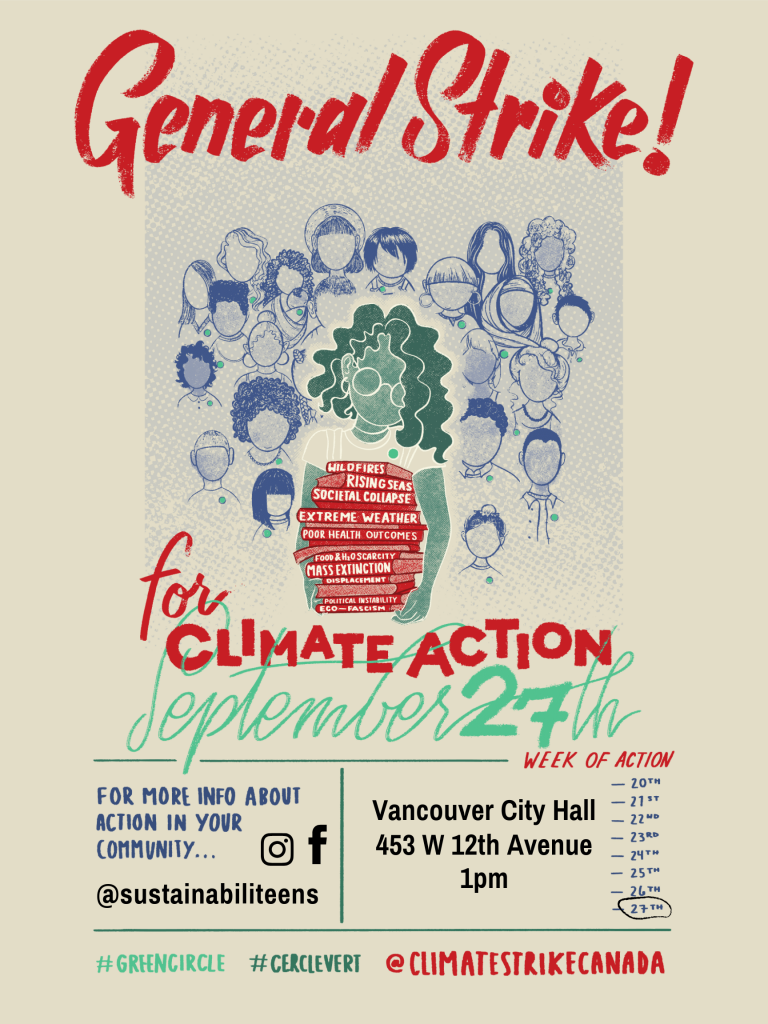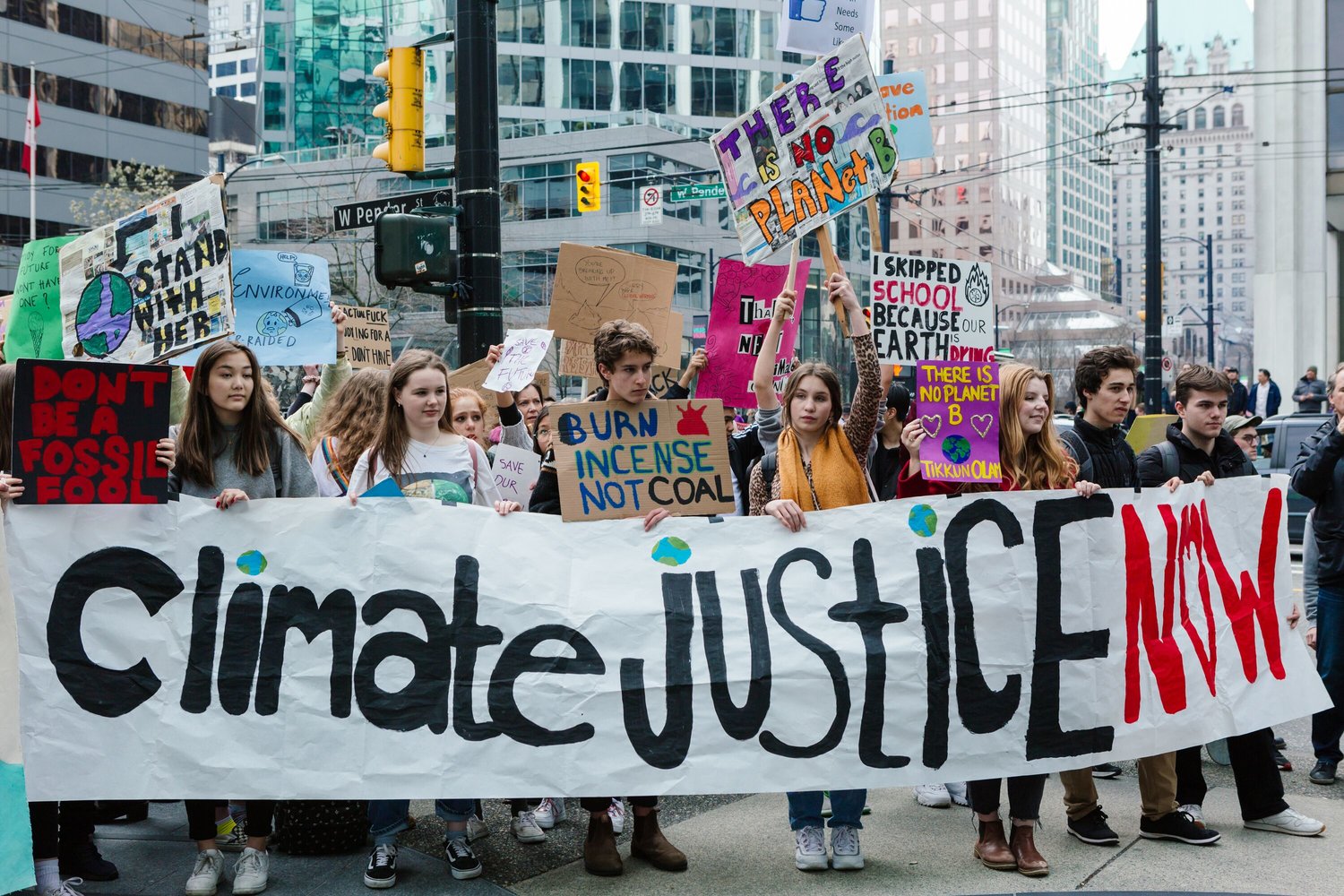
The VSTA Council passed a motion on April 2019 to support the climate strikes. We encourage all members to read the section on how teachers can support the strikes and be aware that we are liable for our students’ safety as we are “in locus parentis” (in the place of a parent). Teachers are at risk of consequences if they direct their students to go out and strike.
The VSTA:
a. Recognize that climate change:
i. Presents an existential threat, being a “global emergency” according to the 2018 Intergovernmental Panel on Climate Change (IPCC) report
ii. Has already had negative impacts both internationally and in Canada, as evidenced by the breaking of heat records, prolonged and more aggressive forest fire seasons, and increased extreme weather patterns
iii. Is a product of inequality, with 70% of the world’s global emissions caused by 100 of the world’s largest companies
iv. Will have the biggest impact on working-class people and developing countries
v. Requires immediate and wide-reaching action within the next decade to avoid disaster
and therefore:
b. Express our solidarity with climate student strikers fighting for real climate action.
How can Teachers support Student Climate Strikes
1. Consider not scheduling tests on Fridays. Tests are often the biggest barrier to students’ decision to participate in Climate Strikes.
2. Take opportunities within teaching time to deconstruct civil disobedience. Consider having conversations regarding civil disobedience, and discuss why civil disobedience can be effective. “An individual who breaks a law that conscience tells him is unjust, and who willingly accepts the penalty of imprisonment in order to arouse the conscience of the community over its injustice, is in reality expressing the highest respect for the law” ― Martin Luther King Jr.
3. We can also discuss the importance of youth rights without saying “go out and strike” (avoid direct language that instructs students to miss school). Instead, you can use language such as “I support your rights to a healthy future.” Teachers must communicate carefully as our allegiance cannot be perceived as indoctrination or permission to skip school.
4. Encourage students to have conversations with adults, especially their parents about their motives to take action. They should be encouraged to seek permission from their parents to participate in Climate Strikes.
5. Talk to other adult allies (friends and family) about the strike and encourage them and their children to attend. The VSTA has reached out to the Vancouver District Labour Council (VDLC) who have also passed motions in support of the Climate Strikes.
6. If there are curricular and core competency connections that can be made in your class, consider the option of organizing a field trip to attend a climate strike.




